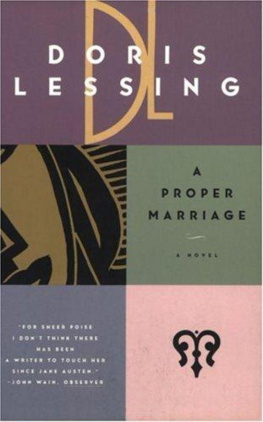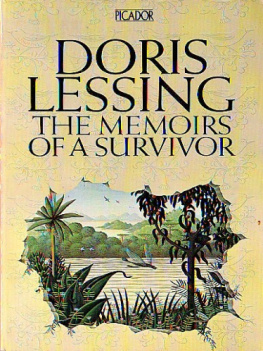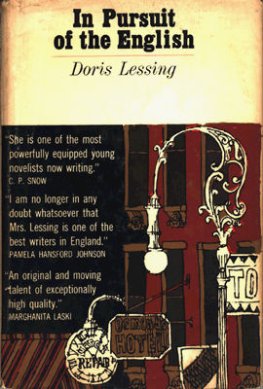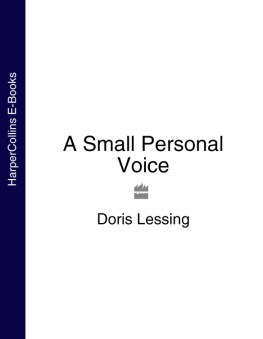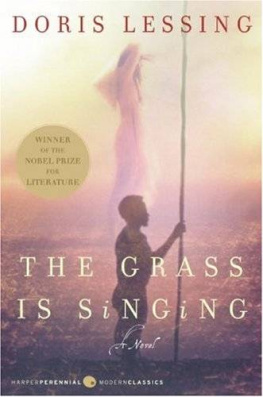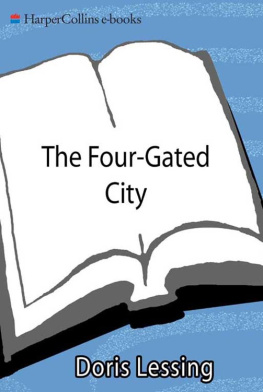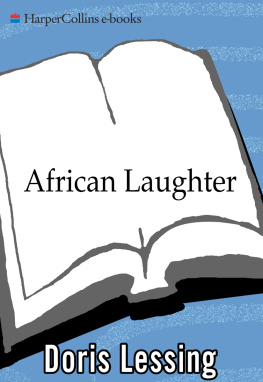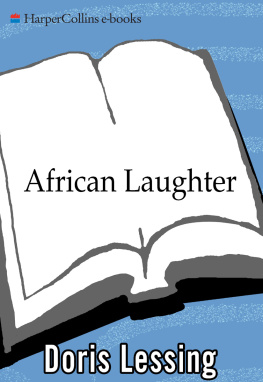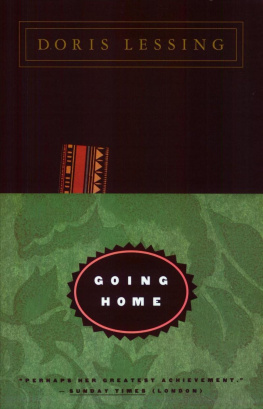Doris Lessing - On Cats
Here you can read online Doris Lessing - On Cats full text of the book (entire story) in english for free. Download pdf and epub, get meaning, cover and reviews about this ebook. publisher: HarperCollins, genre: History. Description of the work, (preface) as well as reviews are available. Best literature library LitArk.com created for fans of good reading and offers a wide selection of genres:
Romance novel
Science fiction
Adventure
Detective
Science
History
Home and family
Prose
Art
Politics
Computer
Non-fiction
Religion
Business
Children
Humor
Choose a favorite category and find really read worthwhile books. Enjoy immersion in the world of imagination, feel the emotions of the characters or learn something new for yourself, make an fascinating discovery.

- Book:On Cats
- Author:
- Publisher:HarperCollins
- Genre:
- ISBN:9780061981951
- Rating:3 / 5
- Favourites:Add to favourites
- Your mark:
- 60
- 1
- 2
- 3
- 4
- 5
On Cats: summary, description and annotation
We offer to read an annotation, description, summary or preface (depends on what the author of the book "On Cats" wrote himself). If you haven't found the necessary information about the book — write in the comments, we will try to find it.
On Cats — read online for free the complete book (whole text) full work
Below is the text of the book, divided by pages. System saving the place of the last page read, allows you to conveniently read the book "On Cats" online for free, without having to search again every time where you left off. Put a bookmark, and you can go to the page where you finished reading at any time.
Font size:
Interval:
Bookmark:

Doris LessingOn Cats

Contents
Particularly Cats
chapter one
chapter two
chapter three
chapter four
chapter five
chapter six
chapter seven
chapter eight
chapter nine
chapter ten
Rufus the Survivor
chapter eleven
chapter twelve
The Old Age of El Magnifico
chapter thirteen
About the Author
Credits
Copyright
About the Publisher
particularly cats
chapter one
The house being on a hill, hawks, eagles, birds of prey that lay spiralling on air currents over the bush were often at eye level, sometimes below it. Youd look down on sun-glistening brown and black wings, a six-foot spread of them, tilting as the bird banked on a curve. Down in the fields, you could lie very still in a furrow, preferably where the plough had bitten deep as it turned, under a screen of grass and leaves. Legs, too pale against reddish-brown soil in spite of sunburn, had to be scattered with earth, or dug into it. Hundreds of feet up, a dozen birds circled, all eyeing the field for small movement of mouse, birds, or mole. You would choose one, straight overhead perhaps; perhaps for a moment fancy an exchanged glance eye to eye: the cold staring eye of the bird into coldly curious human eye. Under the narrow bulletlike body between great poised wings the claws were held ready. After a half minute, or twenty, the bird plummeted straight on to the tiny creature it had chosen; then up and away it went in a wide steady beat of wings, leaving behind an eddy of red dust and a hot rank smell. The sky was as it had been: a tall blue silent space with its scattered groups of wheeling birds. But up on the hill a hawk might easily zoom in sideways from the air circuit where it had been lying to choose its preyone of our chickens. Or even fly uphill along one of the roads through the bush, the great spread of wings held cautious against overhang of branch: bird acting, surely, against its nature in speeding thus along an air avenue through trees rather than dropping through air to earth?
Our chickens were, or at least that is how their enemies saw it, an always renewed supply of meat for the hawks, owls, and wild cats for miles around. From sunup till sundown, fowls moved over the exposed crown of the hill, marked for marauders by gleaming black, brown, white feathers, and a continuous clucking, crowing, scratching and strutting.
On the farms in Africa it is the custom to cut the tops off paraffin and petrol tins and fix glistening squares of metal to flash in the sun. To scare the birds off, it is said. But Ive seen a hawk come in from a tree to take a fat drowsy hen off her hatching eggs, and that with dogs, cats, and people, black and white, all around her. And once, sitting at a domestic spread of tea outside the house, a dozen people were witness to a half-grown kitten being snatched from the shade under a bush by a swooping hawk. During the long hot silence of midday, the sudden squawking or crowing or flustering of feathers might as often mean that a hawk had taken a fowl as that a cock had trod a hen. There were plenty of chickens though. And so many hawks there was no point in shooting them. At any moment, standing on the hill looking at the sky, there was certain to be a circling bird within half a mile. A couple of hundred feet below it, a tiny patch of shadow flitted over trees, over fields. Sitting quiet under a tree Ive seen creatures freeze, or go to cover when the warning shadow from great wings far above touched them or darkened momentarily the light on grass, leaves. There was never only one bird. Two, three, four birds circled in a bunch. Why just there, youd wonder? Of course! They were all working, at different levels, the same air spiral. A bit further off, another group. Careful lookingand the sky was full of black specks; or, if the sunlight caught them just so, shining specks, like motes in a shaft of light from a window. In all those miles of blue air, how many hawks? Hundreds? And every one of them able to make the journey to our fowl flock in a few minutes.
So the hawks were not shot. Unless in rage. I remember, when that kitten vanished mewing into the sky in the hawks claws, my mother exploded the shotgun after it. Futilely of course.
If the day hours were for hawks, dawn and dusk were for owls. The chickens were shooed into their runs as the sun went down, but the owls sat in their hour on the trees; and a late sleepy owl might take a bird in the very early sunlight as the runs were opened.
Hawks for sunlight; owls for half-light; but for the night, cats, wild cats.
And here there was some point in using a gun. Birds were free to move over thousands of miles of sky. A cat had a lair, a mate, kittensat least a lair. When one chose our hill to live on, we shot it. Cats came at night to the fowl-runs, found impossibly small gaps in walls or wire. Wild cats mated with our cats, lured peaceful domestic pussies off to dangerous lives in the bush for which, we were convinced, they were not fitted. Wild cats brought into dubious question the status of our comfortable beasts.
One day the black man who worked in the kitchen said he had seen a wild cat in a tree halfway down the hill. My brother was not there; so I took the .22 rifle and went after it. It was high midday: not the time for wild cats. On a half-grown tree, the cat was stretched along a branch, spitting. Its green eyes glared. Wild cats are not pretty creatures. They have ugly yellowy-brown fur, which is rough. And they smell bad. This cat had taken a chicken in the last twelve hours. The earth under the tree was scattered with white feathers and bits of meat that already stank. We hated wild cats, which spat and clawed and hissed and hated us. This was a wild cat. I shot it. It slumped off the branch to my feet, writhed a little among blowing white feathers, and lay still. Usually I would have picked up that carcass by its mangy smelly tail and dropped it into a nearby disused well. But something bothered me about this cat. I bent to look at it. The shape of its head was wrong for a wild cat; and the fur, rough as it was, was too soft for wildcat fur. I had to admit it. This was no wild cat, it was one of ours. We recognized it, that ugly corpse, as Minnie, an enchanting pet from two years before who had disappearedtaken, we thought, by a hawk or an owl. Minnie had been half Persian, a soft caressing creature. This was she, the chicken-eater. And, not far from the tree where she was shot, we found a litter of wild kittens; but these were really wild, and human beings were their enemies: our legs and arms were bitten and scratched in proof of it. So we destroyed them. Or rather, my mother saw that they were destroyed; because some law of the household I did not until much later reflect about made this sort of nasty work hers.
If you think about it a little: there were always cats at the house. No vet nearer than Salisbury, seventy miles off. No doctoring of cats that I can remember, certainly not of female cats. Cats mean kittens, plentiful and frequent. Someone had to get rid of unwanted kittens. Perhaps the Africans who worked in the house and kitchen? I can remember how often the words
Next pageFont size:
Interval:
Bookmark:
Similar books «On Cats»
Look at similar books to On Cats. We have selected literature similar in name and meaning in the hope of providing readers with more options to find new, interesting, not yet read works.
Discussion, reviews of the book On Cats and just readers' own opinions. Leave your comments, write what you think about the work, its meaning or the main characters. Specify what exactly you liked and what you didn't like, and why you think so.

